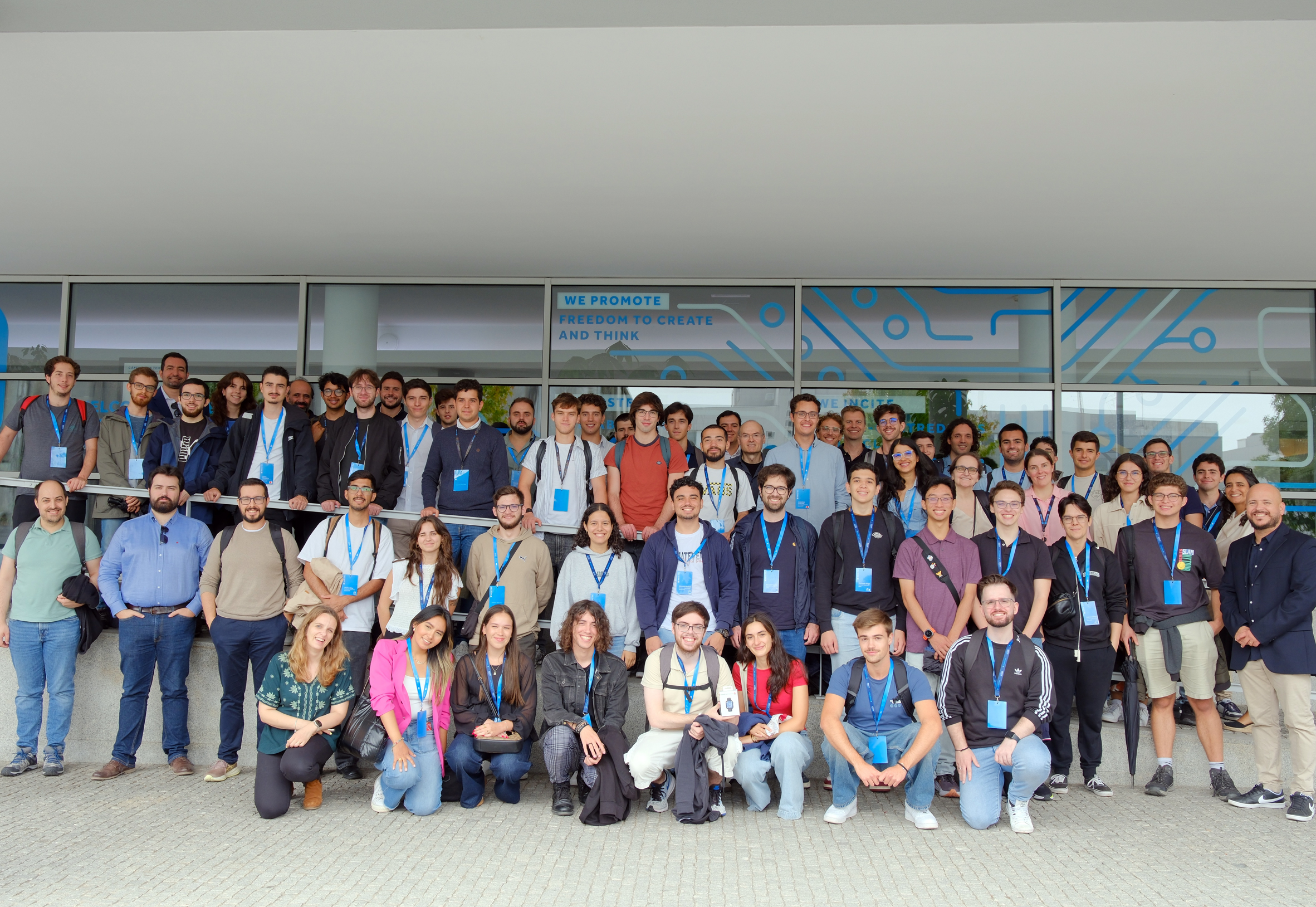More than a hundred university students spent four weeks at INESC TEC, getting to know our leading research Institute. The figures show that one third of these students received research grants to continue their work at INESC TEC after the internship ended, with some even resulting in job contracts.
For eight years, INESC TEC has welcomed dozens of students for their first experience in cutting-edge laboratories and technology in Portugal, allowing them to develop a scientific project of their choice. This year was no exception: 121 young people worked closely with dozens of INESC TEC researchers, getting a first glimpse of a potential future career in science with impact – solving practical, real-world problems.
The INESC TEC Summer Internships covered 80 research topics and, in this edition, brought the real world into the Institute. Undergraduate and master’s students also faced challenges proposed by INESC TEC’s partner organisations, including companies and hospitals. This involvement in the daily life of a research centre inevitably “awakens curiosity about what it means to be a researcher,” said Sara Brandão, head of INESC TEC’s Research Students Office.
The experience plants a “seed” that goes beyond professional aspirations. “The empowering potential of these internships goes far beyond preparing young people for a career in science. By providing a unique experience of direct contact with scientific research, students acquire technical skills – working side by side with researchers, solving practical and real problems. In addition, they also develop essential cross-cutting skills, like communication, autonomy and critical thinking. For all these reasons, we believe this experience is a true asset for the future, whether in a scientific career or any other professional path,” she explained.
A lasting footprint
This path often continues right where it began: in the last two editions (2023 and 2024), one in every three participants received a research grant to continue their projects at the institution. But that’s not all: part of the work developed by the participants went beyond INESC TEC through scientific publications, conference presentations – and even job offers, with one collaboration resulting in a research contract in the power & energy field.
In this year’s edition, held between July and September, INESC TEC received 257 applications and selected 121 students. A quarter of those – who improved their knowledge in areas like bioengineering, telecommunications, computer and engineering sciences, AI, robotics, energy systems and systems management – sought to obtain credit equivalence for a curricular internship required for their degree.

The seed for the future is planted here
The internships concluded with a closing session highlighting the students’ achievements. From robotics to bioengineering and AI, the young participants presented the main results of their four-week internship. The institution also granted awards and acknowledged the projects that demonstrated exceptional quality and impact in their respective research areas.
“During my summer internship, I had an absolutely amazing experience from start to finish,” said Pedro Mendes, one of this year’s participants. The research intern worked on how AI can detect signs of depression based on human-computer interaction (HCI) data.
And the previously mentioned “seed” – representing what INESC TEC aims for with this initiative – was indeed planted. “I loved meeting new people and always felt very welcomed and supported by the entire team. It was a unique opportunity to study and develop my knowledge in a completely new area, while getting a taste of what doing research really means,” Pedro added.
In the field of computing, one of the awards went to Rui Araújo, who saw at INESC TEC a future “closer to science fiction” – more than one could imagine. “It was a privilege to explore emerging technologies that will transform software engineering,” said the student. Carolina Gonçalves and Marco Costa also experienced what that future could look like. During their time at INESC TEC, they interacted with virtual reality devices for the first time – “a very rewarding experience”. “We got to work with several devices we had never used during our degree or master’s, and we gained a broader understanding of the areas of human-computer interaction and virtual reality, which are fields we’re particularly interested in,” they explained.

“Renewing ideas” in a fair exchange
Ultimately, the benefits go both ways: according to Sara Brandão, the Summer Internships “reinforce INESC TEC’s role as a centre for advanced training, strengthening the connection between education and research and contributing to institutional reputation and impact.”
“Concerning INESC TEC, this direct contact with undergraduate and master’s students brings multiple advantages: it brings young people closer to research careers, inspires talent, and helps train the next generation of highly qualified professionals, regardless of the path they choose. It’s also an opportunity to renew ideas and identify future talents who may later join the institution,” added the head of INESC TEC’s Research Students Office.
The Summer Internships initiative began in 2017 within a research group in the telecommunications and multimedia area at INESC TEC. The success of said edition quickly led to expansion into other research Centres within the Institute. By 2023 – already involving more than 50 researchers and over a hundred participants – it had become a consolidated initiative encompassing most of INESC TEC’s research areas.
With each new edition of the Summer Internships, INESC TEC continues to pave the way for the future of science, inspiring young talent and reinforcing the Institute’s commitment to training, research and innovation.




 News, current topics, curiosities and so much more about INESC TEC and its community!
News, current topics, curiosities and so much more about INESC TEC and its community!